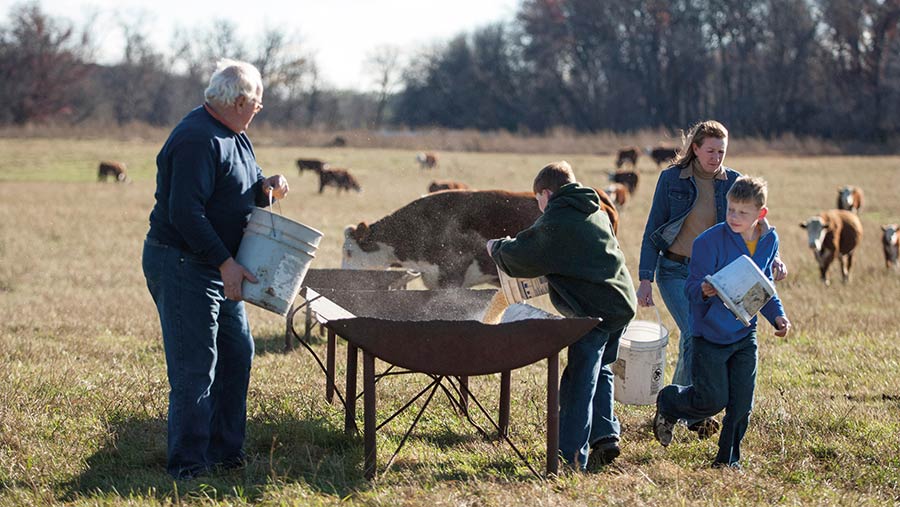Business Clinic: Is succession a key consideration when developing land?
 © Cavan Images/Alamy Stock Photo
© Cavan Images/Alamy Stock Photo Whether it’s a legal, tax, insurance, management or land issue, Farmers Weekly’s experts can help.
Andrew Robinson of Armstrong Watson advices on the tax and the considerations of potential development land held in a farming partnership.
See also: Tips for maintaining farming and inheritance tax reliefs
Q. Some land owned by our farming partnership has development potential. Is it better to bring the next generation into the partnership or to gift it to them outside the business?
A: As always, it is advisable to undertake planning on development land at an early stage.
There are more options available when land is still in agricultural use and its value will be lower before planning permission is applied for.
Business succession and the involvement of the next generation is the most important decision a farming family has to make.
We would caution against taking decisions that benefit the short-term tax position, but don’t fit the long-term aims of the next generation.
The issues can be split into capital gains tax (CGT), inheritance tax (IHT) and non-tax issues.
Capital gains tax
- The sale of land purchased or inherited at agricultural value will lead to a large capital gain
- The rate of CGT payable will be either 10% or 20%, after deduction of an annual exemption of £12,300 for each individual
- If the family intends to invest the proceeds in replacement land or other qualifying assets, rollover relief can be claimed to defer the CGT until the new asset is sold
- A claim for business asset disposal relief (BADR) from CGT will result in up to £1m of capital gains per person being taxed at 10%
- Only certain disposals of business assets qualify for BADR, most commonly the sale of all or a distinct part of a business. The sale of a small area of land for development will not qualify unless a business restructure takes place at the same time as the land is sold
- A person needs to be a partner in the farming business for at least two years to qualify for BADR. Therefore, planning to obtain BADR needs to take place well in advance of the likely sale date
Inheritance tax
- The sale of development land and investing the proceeds in non-business assets can result in an IHT liability. IHT is paid at 40% on a person’s estate after the deduction of agricultural and business reliefs, and nil-rate bands
- Agricultural property relief is only available on the agricultural value of land, and development land clearly has non-agricultural value. Business property relief can be available against the non-agricultural value of land, but only if it is owned within a partnership
- IHT can also be due on assets given away in the seven years before death. One benefit of gifting assets during lifetime is that IHT is calculated on the value at the date of gift, rather than at the date of death
Non-tax issues
- Proceeds from development land sales should make succession planning easier, in that funds are available to fund the inheritance of non-farming children
- Where a partnership owns land, and new partners are to be introduced, it is absolutely essential to have a well-drafted partnership agreement
- Passing assets to the next generation as part of tax planning could have an adverse consequence in the event of divorce or dispute in the family. Creating a trust for the benefit of grandchildren, for example, is an effective way of passing assets down the generations while safeguarding against these issues
Planning for development land is not easy because the timing of receipts is uncertain, and usually outside the landowner’s control.
Projects can take many years to come to fruition and it is not clear whether priority should be given to CGT or IHT planning.
Do you have a question for the panel?
Outline your legal, tax, finance, insurance or farm management question in no more than 350 words and Farmers Weekly will put it to a member of the panel. Please give as much information as possible.
Email your question to FW-Businessclinic@markallengroup.com using the subject line “Business Clinic”.
